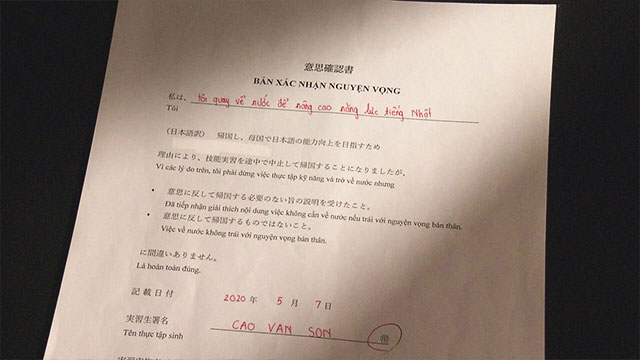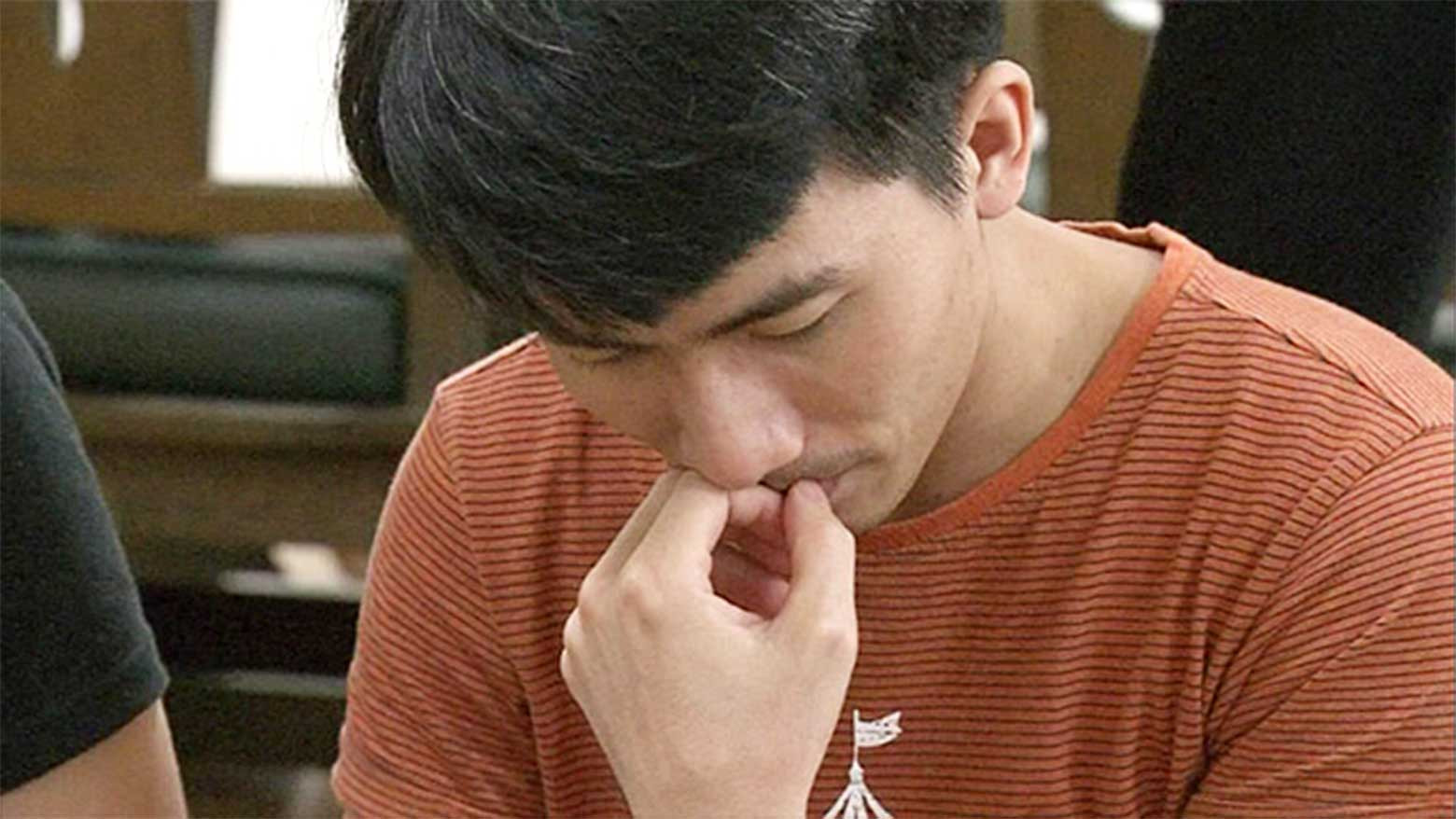Son arrived in Japan last October and was hired by a company in Tokyo. He lived in the firm’s dormitories and worked mainly at hotels around the city, sending whatever money he could back to his parents. In his free time, he studied Japanese.
But in March, the hotel industry was devastated by the coronavirus, and work dried up. Every day, Son waited for a job but nothing came. In May, he says his company pressured him to quit and vacate the dormitory.
Before he left, Son says he was pressed by his employer to sign a form entitled “Confirmation of Will.” It served as confirmation that the signee was suspending their training program and returning home of their own free will.
Son says he told his employer that he wanted to continue working as he had to repay about $9,500 worth of loans which he had partly used to finance his trip to Japan. But he says he was surrounded by company officials and felt he had no choice but to sign the document.

Japan’s labor ministry says that 3,428 foreign technical trainees have been dismissed from their jobs due to their employers’ coronavirus-induced financial woes as of August 28. But this figure only covers dismissals. It does not include cases like Son’s, which are reported as resignations.
The Japan Vietnam Mutual Support Association, a nonprofit organization that assists Vietnamese nationals in Japan, says many former trainees like Son are seeking help. The group says that the employers claim the trainees quit of their own free will.
“There could be a number of reasons companies are forcing their trainees to sign these forms,” says Saito Yoshihasa, Associate Professor at Kobe University and an expert on issues related to foreign laborers in Japan. “But I think the main issue is that they are worried they will face tougher government screening when hiring trainees in the future if they admit to dismissing their current employees due to financial problems.”
When contacted by NHK, Son’s former employer maintained they only dismissed him after he had requested to quit so he could return home.
Challenges to finding a new job
Son tried to find a new job with the help of the Japan Vietnam Mutual Support Association. But the “Confirmation of Will” hindered his efforts.
Under the technical internship program, trainees were originally unable to freely switch jobs. But the government changed this rule in April. Trainees who had been dismissed due to the coronavirus outbreak were now allowed to find new work in one of 14 industries, including farming and nursing care. They are allowed to keep these jobs for up to one year.
But trainees who quit are not covered by the measure. And according to the “Confirmation of Will”, Son did exactly that.
“It’s still been less than a year since I came to Japan so I can’t understand Japanese laws and systems,” Son says. “It has been difficult for me to get the information I need.”
The Japan Vietnam Mutual Support Association spent four months making Son’s case to the Justice Ministry. Eventually, the ministry conceded that Son had been dismissed due to the economic impact of the coronavirus. He was finally given the green light to take up work at a food processing company in Tochigi Prefecture.
But Yoshimizu Jiho, the head of the association, says Son is one of the lucky cases. Most have been unable to find new work.
“The coronavirus pandemic has shed light on the extent to which Japanese industries rely on foreign trainees,” Saito says. “The government brings these trainees here on a state program, so naturally it must also protect them when they are out of work.”
As of last December, about 410,000 foreign trainees were working in Japan.

